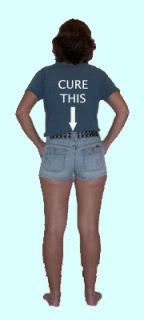Deconstructing Sally-Anne
The theory of mind idea was a conclusion drawn from the Sally-Anne test, an experiment performed by Simon Baron-Cohen and other psychological researchers. The study included several groups of children, some of whom were autistic children. The researchers performed a skit that went like this:
Sally puts a marble in a basket and leaves the room. While she is gone, Anne removes the marble from the basket and puts it in a box. Sally comes back into the room, and the child is asked, "Where will Sally look for her marble?"
The response of most of the autistic children was to point to or name the box, while most of the non-autistic children identified the basket. The researchers concluded that the autistic children who chose the box were incapable of understanding that Sally did not know the marble was in the box.
Of course, this is not the only possible conclusion that could be drawn from the data, and it's not even the most logical interpretation. Because autistic children have significant differences in speech processing, it seems far more likely to me that they simply misunderstood the question.
The word "look" has several distinct alternative meanings in the English language. It can mean viewing a person or object, such as in the phrase "look at." It also can mean searching for a person or object outside one's field of view, when used in the phrase "look for." Distinguishing between these two meanings requires a child to have a fairly complex understanding of prepositions and idiomatic speech. (Edit: Dr. Morton Ann Gernsbacher has noted that the questions asked during such tests "are some of the most complex syntactic structures in the English language.")
Many autistic children learn the word "look" in the context of behavioral therapy with "look at me" prompts. Such children may not be aware that the word has an alternative meaning of searching for an item that is out of sight. They will interpret the question as "Where will Sally see her marble?"
Also, autistics are more likely to be visual-spatial thinkers, whereas the majority of the population consists of auditory-sequential thinkers. A visual-spatial thinker, upon hearing the question "Where will Sally look for her marble?" will translate that question into mental images of Sally, the marble, and the location of the marble. An auditory-sequential thinker, on the other hand, will focus on the action of looking as a sequential process: Sally first has to look for the marble before she can find it. There is an implied "first" in the question—where is the first place that Sally will look for the marble—but a child who processes language visually may not understand that the question has a sequential component. Instead, such a child may interpret the question as "Where will Sally have to look to find her marble?"
There are so many possible ways that an autistic child could misinterpret a question like that, it's frankly astounding to me that any researchers would think they had a basis for drawing any conclusions whatsoever from such a study.
Here's my belated Christmas gift to Simon Baron-Cohen: a few garlic cloves to put in Anne's box to keep the vampires away when it's buried.
Labels: psych industry

